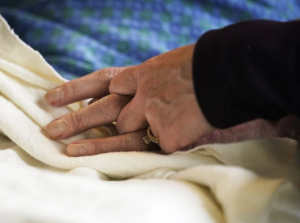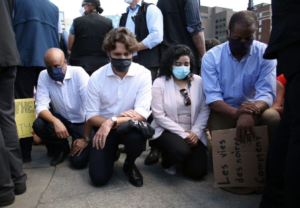St Paul’s Euthanasia Case a defining moment for Canada

Litigation has been launched against the Catholic organization that operates St. Paul’s Hospital in Vancouver. It is the next front in the battle against health-care institutions that refuse to perform euthanasia — medical assistance in dying, as the law terms it — on the basis that this practice is lethal conduct rather than health care.
Spearheading the litigation is Dying With Dignity Canada, an organization that is no stranger to fighting for euthanasia in Canadian courtrooms. The lawsuit features two core claims. The first is that health-care institutions that refuse to provide euthanasia on site and instead require patients to be transferred violate the Charter rights of patients who are legally eligible for euthanasia and wish to be euthanized. The second is that this scenario violates the Charter rights of health-care professionals who do not oppose euthanasia but who work at facilities such as St. Paul’s.
The lawsuit emerges from the case of Sam O’Neill, a 34-year-old patient being treated for cervical cancer at St. Paul’s. O’Neill eventually asked to be euthanized and, after being transferred to a facility that provides euthanasia, O’Neill’s life was ended in April 2023. Her representative in the lawsuit argues that the circumstances of her transfer exacerbated and prolonged her suffering, which violated the Charter. After O’Neill’s story made headlines last year, the province of B.C. announced a policy that would expedite transfers for euthanasia from St. Paul’s.
This case raises an array of major constitutional questions, all of which will have to be carefully considered by the courts. But the case may hinge upon whether a provincial government can allow certain health-care facilities to opt out — for moral, ethical or religious reasons — of providing lawful practices that have been integrated into the health-care system. Catholic moral teaching says that euthanasia is wrong because it involves the intentional termination of human life. Euthanasia, from this view, does nothing to improve the health of the patient. Rather, euthanasia kills the patient.
A shortcut in this lawsuit — an easy way out — would be to say that St. Paul’s must make a choice: offer everything that can be legally provided at a hospital or else close its doors. Euthanasia has been added to our public health-care system, so no hospital can refuse to provide it.
This would indeed be a neat and tidy way to resolve the case. This outcome bears the traits of simplicity and efficiency. But it would fail to account for Canada as a diverse, free, tolerant, and democratic society. These features sit at the bedrock of our constitutional architecture and imbue our core civic commitments. They rarely translate into easy answers where conflicting visions of what is good, right, and true collide. On that metric, this case is a head-on collision.
The starting point in cases like these in a society like ours is reasonable compromise, not expelling from the public square organizations that contribute to our communities. Catholic health-care institutions have operated in B.C. for more than a century. Providence Health Care, the organization that operates St. Paul’s Hospital, provides excellent health care to British Columbians by manifesting the Christian impulse to heal the sick and comfort the dying.
The choice by a government to allow organizations such as Providence to support the health-care system in line with its religious identity and moral convictions should be said to fall within the latitude that governments possess when delivering complicated, expensive, and administratively burdensome policies and programs. Providence has offered to shoulder part of that burden. Its facilities provide almost everything that the law says can be provided in health-care settings.
To say that St. Paul’s endangers access to euthanasia by not performing it is hard to accept. Statistics reveal that Canadians have by and large had no meaningful difficulty in being euthanized since the practice was decriminalized in 2016. The number of deaths by euthanasia has steadily increased each year. Among the provinces, B.C. sits near the top of the list in terms of euthanasia rates. From the perspective of achieving reasonable compromise, these realities should receive significant weight in the case against St. Paul’s.
There is also growing evidence that euthanasia-free health-care spaces such as St. Paul’s play an important role in a society that features a range of opinions on this sensitive topic. Simply put, some of us do not want to be treated in a hospital where euthanasia is performed. In some cases, patients seek medical help because they worry that, without help, they might end their lives. These concerns — matters of life and death — cannot be brushed aside. Facilities such as St. Paul’s that do not provide euthanasia are increasingly few and far between in Canada. It is prudent and wise for governments to preserve some health-care spaces where death is not offered to patients.
The case against St. Paul’s has the potential to reach the Supreme Court of Canada and be a landmark ruling — not just on how the Canadian Constitution envisions certain rights and freedoms but, in a definitional sense, on the kind of society Canada perceives itself to be.
With St. Paul’s, the courts will decide a case of profound significance. Shortcuts will not suffice.






